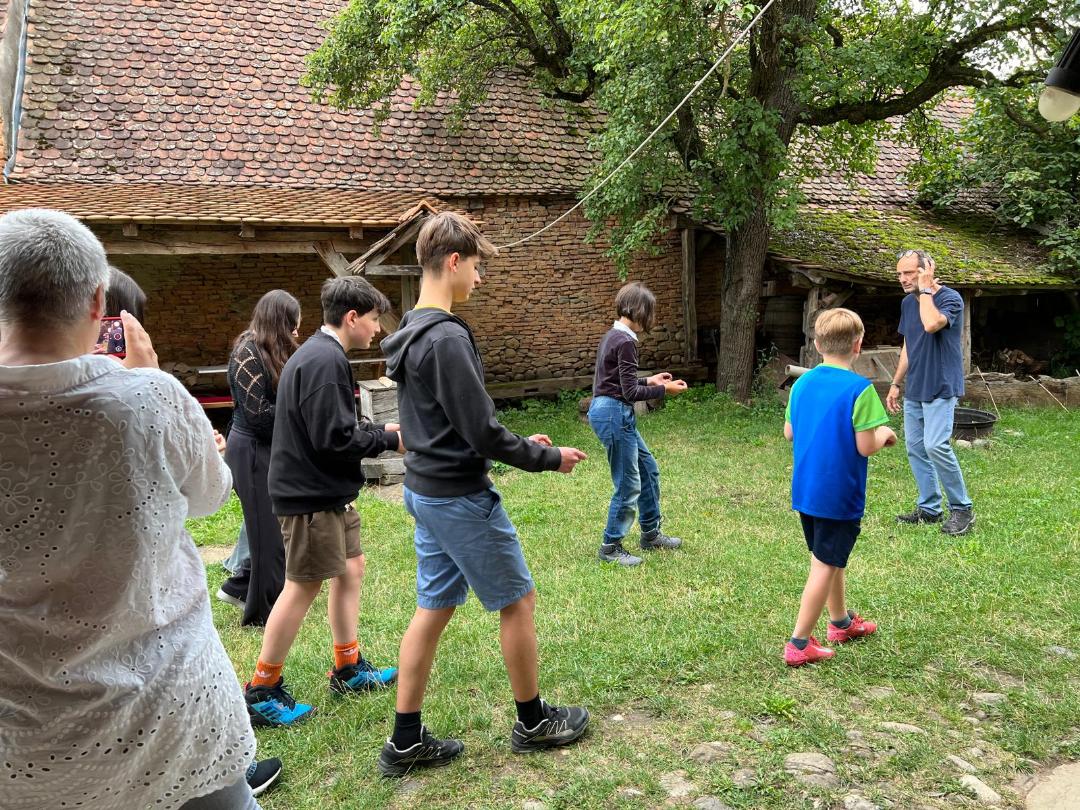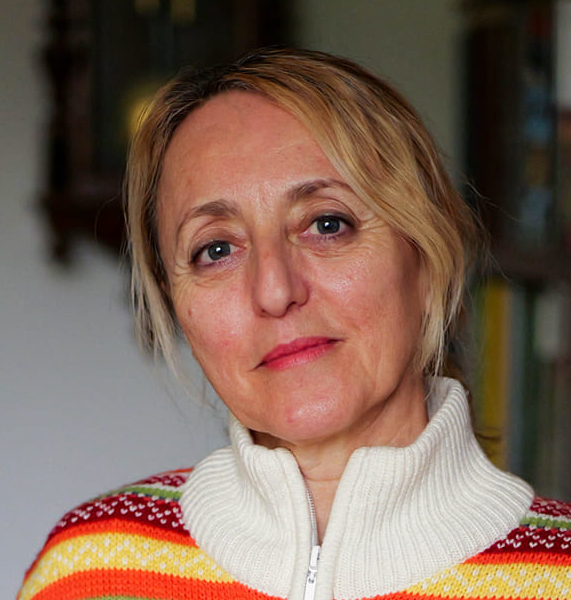This is the opinion of Gergely Sarah-Maria, a student from the “Samuel von Brukenthal” National College in Sibiu, at the end of her participation in the “Revista 2000+” summer school, which took place in two villages in Transylvania, in Criț and in Viscri.
What is the Magazine? 2000+?
It’s a fantastic story that DW journalist Robert Schwartz tells as follows: “In the summer of 2024, in my “treasure chest” in my parents’ house in Sibiu, I found the archive saved in 1990 of the magazine “2000” of the German High School in Bucharest, where I was, in turn, a substitute teacher, a German teacher and, after ’89, director (for a year). I kept the files with texts in a hazy plastic bag, received “from the helpers”. Now, in 2025, we have managed to gather some of the editorial staff from the 70s/80s. We are setting off on a project to “revive” the magazine, a project financed by the Administration of the National Cultural Fund (AFCN). The first issue appeared in 1968, the last in 1980. Communist censorship said STOP. The editorial team kept getting better and lasted until 1987. Texts and poems were written, there was a lot of free discussion, everyone hoping that the magazine would appear someday. 1989 came. And the magazine appeared. In 1990. A single issue. Then the shutter was pulled. Now I have it reopened.”
And what happened after that?
For a week, between July 28 and August 2, 2025, the Brașov villages of Criț and Viscri were transformed into an open editorial office under the Transylvanian sky. Here, students from three German high schools – “Brukenthal” in Sibiu, “Honterus” in Brașov and “Goethe” in Bucharest – encountered not only the history of a banned magazine, but also a possible future. They wrote, filmed, read poetry from the 1980s, but, above all, they thought freely. It was the Summer School 2000+ and, for some of the young participants, perhaps the beginning of a road.
“When I came across a poem in the old magazine 2000, it exceeded all my expectations. I aspire to be able to write something like that,” Sarah Gergely confesses. “I wish I could put my feelings on a blank page and bring them to life with the help of words. More than that, to be able to reread them over 50 years years.”
For Sarah, the encounter with the school press’s past was like a trigger: “The eternal battle between generations made peace through those articles. We are the same in a very different way and original”.
“I believe that the 2000 Magazine does not reflect a big difference between the years in which it was written and 2025. Their thoughts are surprisingly current. If we put a text from that magazine next to one written today, I think a student would have difficulty telling which one belongs to his generation,” says Tudor Nica, a 10th grade student at “Brukenthal”.
Journalism, between dream and vocation
What did these teenagers discover in the old dream of a magazine banned by the communists in 1980? Maybe the fact that journalism is not just about news, but about community, courage and collaboration.
“The school press gives us a space to express our ideas, to learn teamwork. It helps us understand the world better and be more involved in school life,” he says. Tudor.
“When I found out about this camp, this summer school, I thought it was a perfect opportunity to also improve our school magazine (Der Brukenthaler) through the lens of the 2000+ Magazine,” he admits. Sarah.
And for Hugo Spahiu, from “Honterus”, the magazine is more than a final product. “I think a school magazine would help me in the future, no matter what field I would go into. Apart from the fact that the result is very cool, just the process of making a school magazine helps us collaborate as a team. It helps us understand that if we only focus on what we have to do without helping others, the magazine cannot be printed at all,” he tells EurActiv.ro.
The students presented at the annual conference of the Romanian-German Bilateral Cooperation Forum (FCBRG), which traditionally takes place during the “Haferland Week”, and the Revista 2000+ website was launched: www.revista2000.com and the page www.revista2000.ro . – the new generation website was built right during the summer school, with the help of Alex Sofonea and Tecky.
Their intervention, in front of an audience of ambassadors, MEPs and career journalists, was received with applause and enthusiasm. Perhaps because it was authentic, clear and very well articulated. It sounded like the future.
Mentors, no teachers
The experience in Criț and Viscri was not about lessons, but about inspiration. Robert Schwartz, journalist and former teacher, was the soul of this adventure. Alongside him – Bianca Ștubea, director Anca Berlogea-Boariu and documentary filmmaker Laura Căpățână-Juller. All, former members of the “2000” editorial team, with stories about the courage to write in difficult times. Now, the mentors of a generation that is just start.
“I believe that a young journalist has every chance to experience the beauty of the profession if they have extraordinary mentors,” says Sarah. “As in all professions, it is the people who determine a young person’s path to achieving goals.” own.”
The summer school was organized in partnership with the M&V Schmidt Foundation – Haferland Week and Mihai Eminescu Trust and benefited from the involvement of a team of journalists and teachers – former students of the German High School in Bucharest, today the College of “Goethe”.

A continuity beautiful
For Tudor, the connection between the past and the present is clear: “The students back then were not very different from us. They had the same questions, curiosities and the desire to be heard. Through Robert and Bianca I see a beautiful continuity of the Revista project 2000+.”
Even the question “What chances does a young journalist have in Romania?” received direct and optimistic answers: “A lot depends on passion, courage and adaptation. It’s not easy, but if you are creative, honest and know how to use new technologies, you can stand out and even change something for the better,” he believes. Tudor.
The end? Barely the beginning!
2000+ Magazine is not just a magazine. It is a pretext to bring generations together. It is a network of ideas, emotions and projects. It is proof that some dreams do not disappear, they just sleep until someone has the courage to make them come true. revive.
